Rogers Hornsby’s decision to spend his baseball-less winters staring out the window and waiting for spring may have made sense in the 1930s, but it doesn’t quite hold up these days. After all, there’s been about 100 years of filmmaking advances since the Hall of Fame second baseman uttered those words. For us 21st-century citizens, we can get through the coldest months curled up on the couch, watching an endless stream of baseball movies until the very minute pitchers and catchers report.
But just which are the ones worthy of our time and devotion? Over the next two weeks, MLB.com’s best and brightest will come together for some open-ended and spirited debates over the most iconic baseball films in celluloid history. Today, we’ll kick off our movie roundtable series with the three movies best known for their Hollywood Endings: “The Natural,” “For Love of the Game,” and “Field of Dreams.”
Our panelists: Ian Browne, Anthony Castrovince, Alyson Footer, Adam McCalvy, Manny Randhawa
—
Alyson Footer, editor/moderator: Baseball fans come in all forms, but I think one thing we can all agree on is that everyone has an opinion on baseball movies. We’ll be conducting a few of these debates over the next few weeks, with the movies grouped into categories. Today, we’re discussing three movies that fall into the bucket of HOLLYWOOD ENDINGS.
They are: “The Natural,” “For Love of the Game,” and “Field of Dreams.” We’ll start with an easy question – which one do you like the most, and which do you like the least?
Personally, I liked “Field of Dreams” a little more than “The Natural,” with “For Love of the Game” coming in last.
Manny Randhawa, reporter/producer: It’s hard to top “The Natural” — a baseball smashing into a light standard, resulting in fireworks as a hero with a blood-stained uniform rounds the bases. Least favorite among these is “For Love of the Game.”
Ian Browne, Red Sox beat reporter: I love, love, love “The Natural.” I saw it in the theater in 1984 when I was 12 and have seen it approximately 89 times since. I like “Field of Dreams” the least. I think that movie is wildly overrated. Not to say I don’t like it. I just think it gets too much hype.
Anthony Castrovince, columnist: “The Natural” is No. 1 among all baseball movies for me (with the exception of the last 30 minutes of “The Naked Gun”). I’ll put “For Love of the Game” second and “Field of Dreams” third … even though I have never seen “For Love of the Game.”
“The Natural” is everything.
Browne: Agree with you, Castro. “The Natural” is the best baseball movie I’ve seen.
Adam McCalvy, Brewers beat reporter: I am the rare fan of “For Love of the Game,” which I’m sure we will get to later … but the best of the three is easily “The Natural.” It’s the most complex story, the most well-acted and has the Hollywood ending of all Hollywood endings.
Browne: I also don’t understand why the critics — and some of you — are so down on “For Love of the Game.” I enjoyed it.
Footer: Lots of “The Natural” fans here. I agree that the story and character development is by far one of the best of all baseball movies. Let’s just start with the cast — an All-Star lineup of Robert Redford, Glenn Close, Barbara Hershey, Kim Basinger, Robert Duvall and Wilford Brimley. (Really, if you need someone to play a Major League manager, shouldn’t your first choice always be Wilford Brimley?)
Browne: Pop is the best baseball manager in any movie, without a doubt. “I wish I was a farmer.” Every time he says that, I laugh.
Castrovince: Before we go any further, I just want to point out that Wilford Brimley was 49 when “The Natural” was filmed.
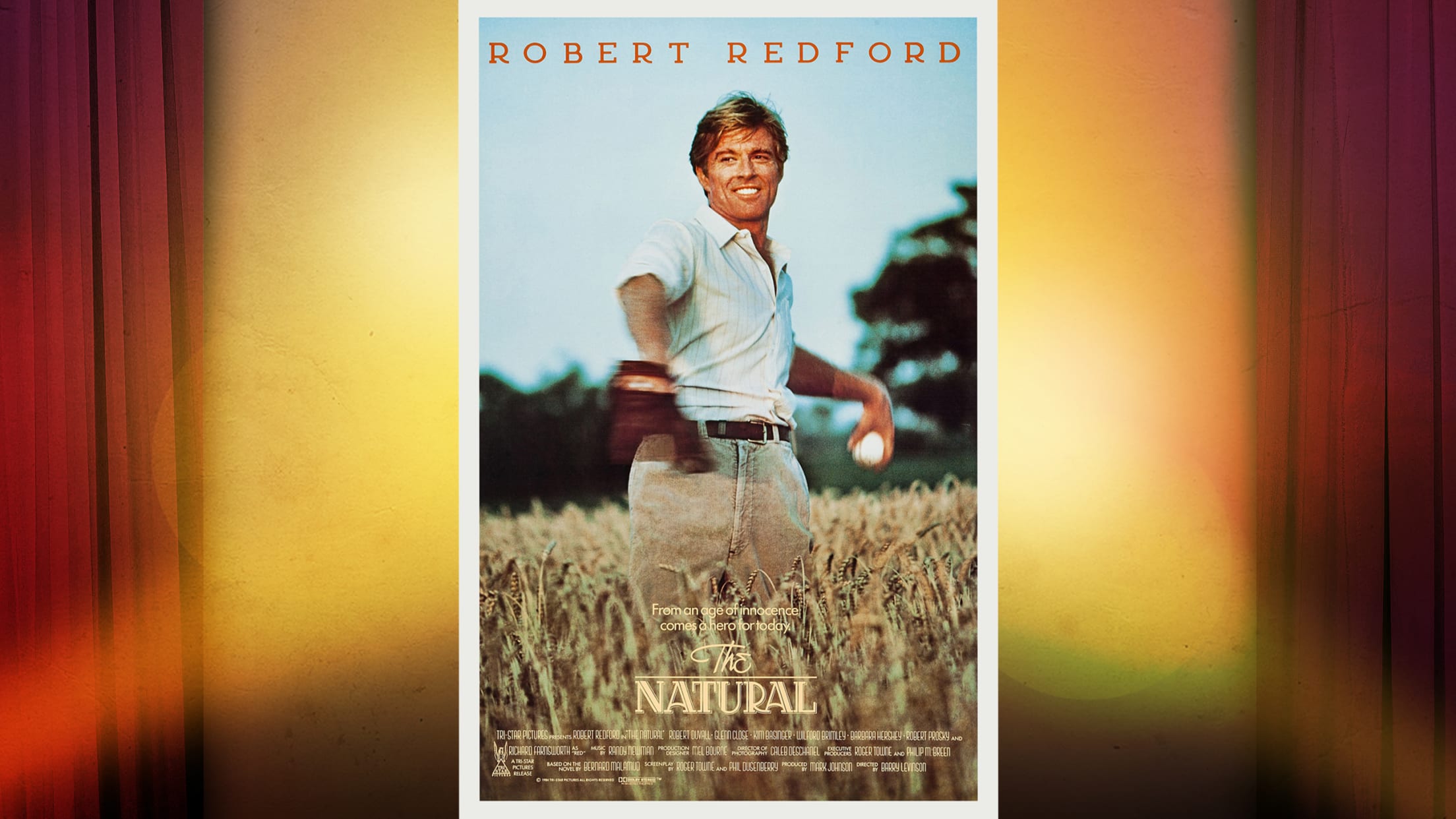
Footer: Brimley was 49 and Redford was 48 when this movie was released. Which means Redford was 46-47ish when they were filming it. He’s in pretty much every scene, including the opening when he’s 19 and touted as the next big thing (before Barbara Hershey shoots him). This strikes me as something that was totally acceptable in the 1980s and would not fly today (being 30 years older than the character you’re playing, not the shooting part).
And then the film fast-forwards 16 years, which means Redford is now 35. Still not anywhere near his actual age of 47/48. The funny thing is Redford definitely looked like a man well into his 40s at the time this movie came out. As dashing as he was — and still is — he was never blessed with the Paul Rudd-Dick Clark mojo, where they look 20 years younger than they are. And yet, even Redford’s early scenes were mostly believable.
Castrovince: If they made it today, they’d try those age-altering techniques from “The Irishman” that didn’t really work and cost too much money.
Browne: But you make a great point about the cast. Unbelievable cast. Redford is an all-time great. Glenn Close is an all-time great. Robert Duvall is an all-time great. Plus you have Barbara Hershey and Kim Basinger … two pretty solid actors. Also, the storyline keeps you on the edge of your seat. There is so much tension. It’s not just a schmaltzy baseball movie with a Hollywood ending.
McCalvy: I think we should all admit our bias toward “The Natural” because of the Robert Duvall character. A wise old scribe, just like all of us (except Manny. Not that Manny isn’t wise. Just that he’s not old).
Browne: My son asked me yesterday if David Ortiz treats me the way Roy treated Max.
Castrovince: “The Natural” has it all: Nostalgia, mystery, a sense of wonder. And look, I’m just going to say it: “The Natural” is a better father-son movie than “Field of Dreams.” It gets all the father-son baseball bond stuff across without beating you over the head with it.
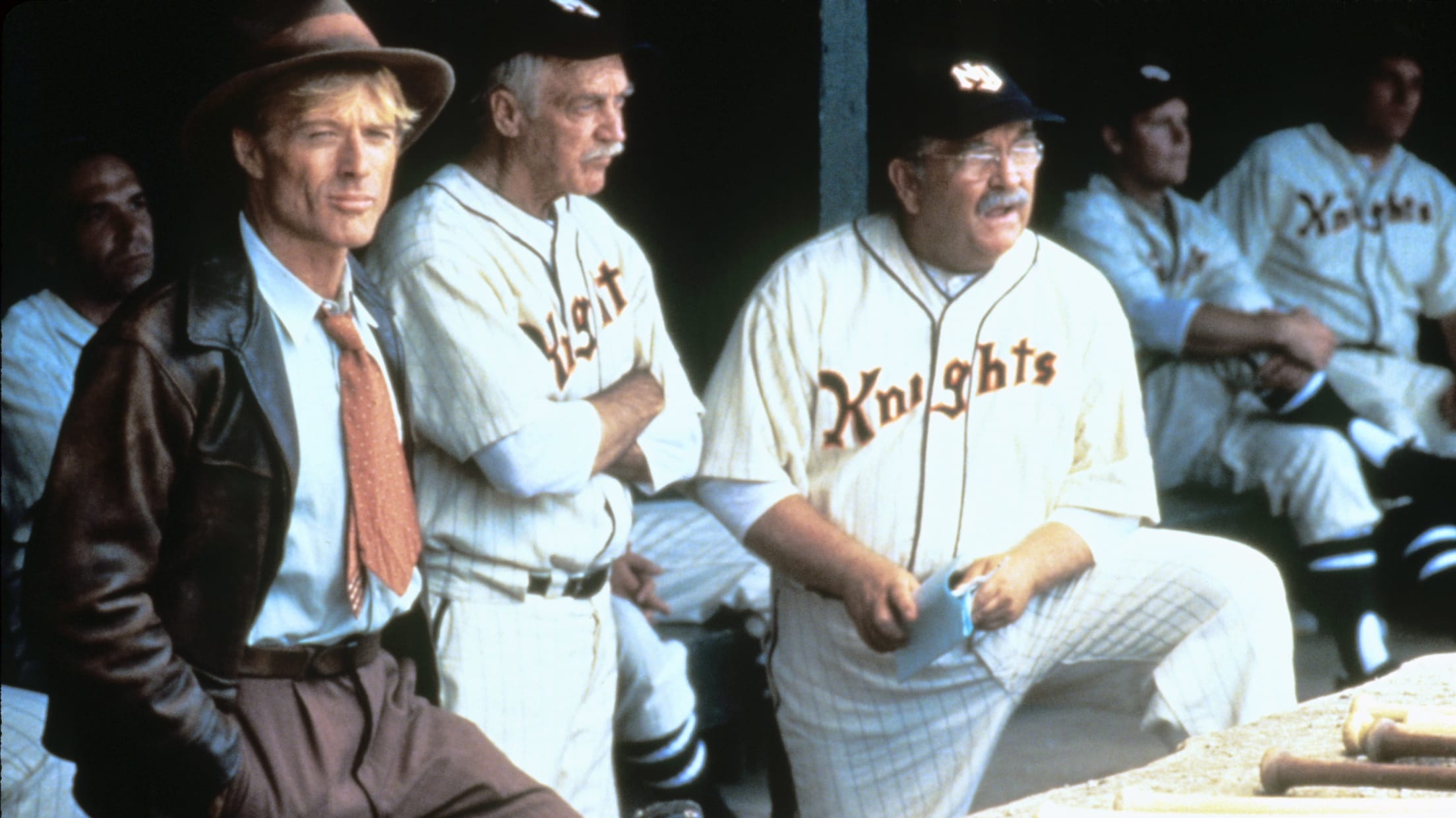
Randhawa: The lightning striking the tree from which the bat gets made, etc. The mythical element was so good in “The Natural.”
Footer: That’s a good point. The mythical element in “The Natural” seems to be more widely acceptable than all of the unrealistic things that happened in “Field of Dreams.”
Castrovince: “The Natural” somehow manages to be fantastical and yet understated.
Browne: I love the ode to Ted Williams from Roy Hobbs/Robert Redford. “I want people to walk down the street and say, ‘There goes Roy Hobbs, the best there ever was.'”
Randhawa: “What else is there?”
Browne: Also, the Whammer is obviously supposed to be Babe Ruth. That whole carnival scene where Roy strikes him out is awesome.
Randhawa: The dude dying by crashing through the wall was kinda crazy.
Footer: That part actually made me laugh, how little anyone seemed to care that he was dead.
Browne: Not even his girlfriend. She just moved right onto Roy.
Footer: Well, this is Redford we’re talking about here.
I think it’s cool that the ending had both a Kirk Gibson-Curt Schilling element, yet neither of those things had happened yet in ’84 when this film came out.
Browne: I was also thinking that about Gibson/Hobbs. Rare that a movie sets up a real moment!
Why couldn’t they get Scully for “The Natural”?
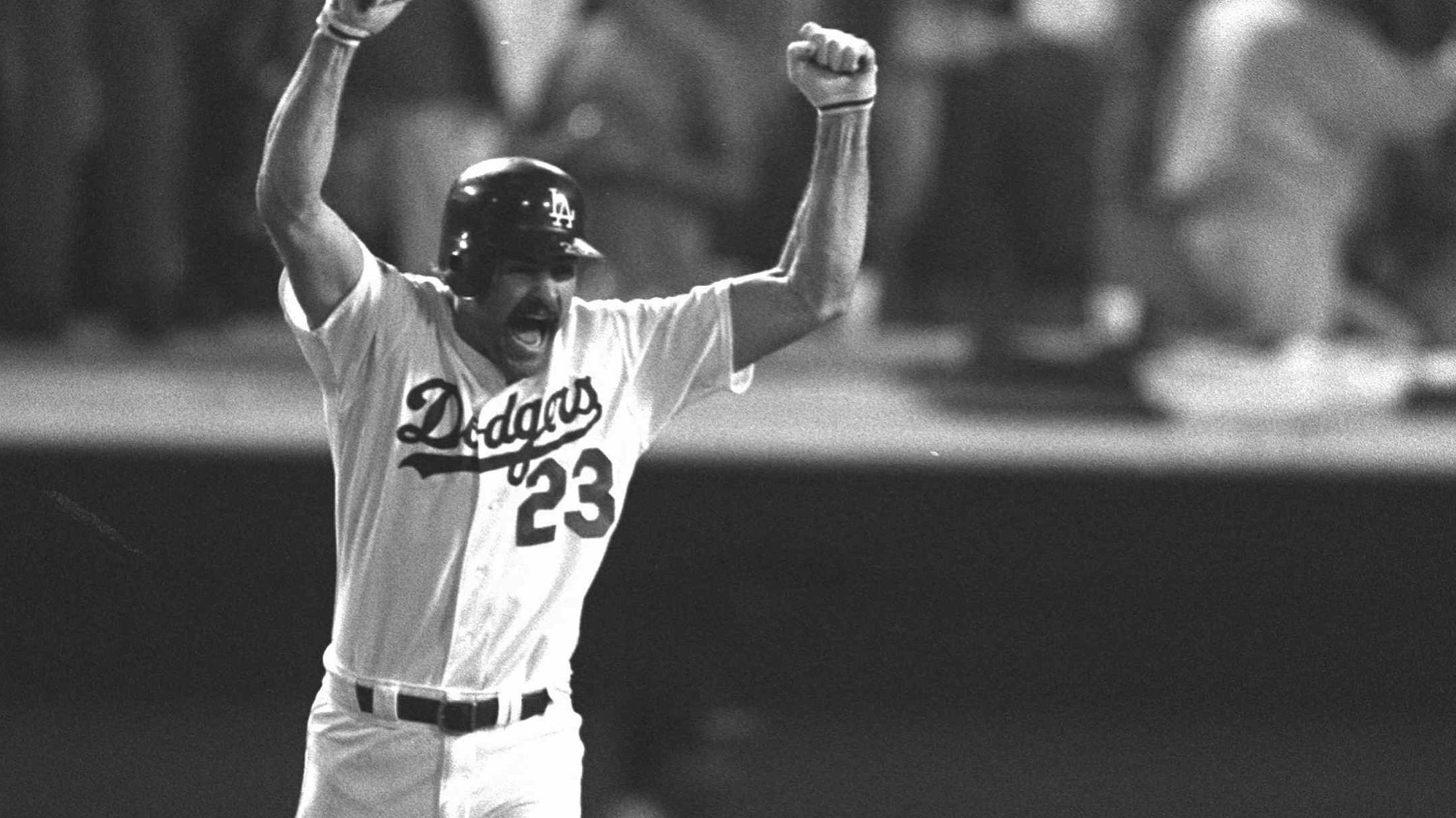
Randhawa: Just imagine: [Extremely Vin Scully voice] “Here comes Roy Hobbs …”
Footer: I just got chills, Manny.
Randhawa: Can you imagine Scully calling Hobbs’ homer at the end? With the blood-stained jersey and everything?!
Footer: “The kid from rural America, gets shot by a townie with questionable judgement and comes back to beat aaaaaaall the odds …” – in Vin’s voice
Randhawa: “Now the only question is, will he be able to get around the bases unassisted!”
Browne: Just some underrated great stuff in “The Natural” though. Pop before Roy’s first at-bat: “Hit the cover off the ball, Hobbs.” Then he literally hit the cover off the ball.
I wonder if Glenn Close’s character got a full World Series share from the Knights. If not for her A) standing up in that one scene and B) writing the note about Roy having a son in the finale, the Knights never win the pennant. Her impact is underrated.
Footer: This seems like a good time to pivot to the ratings segment of our programming.
Rate the Hollywood ending: (scale of 1 to 5, 5 being the best)
Dramatic effect: 5
McCalvy: 5
Browne: 5
Randhawa: 5
Castrovince: 6
Footer: Buildup to the big moment: 4
Browne: 4.5
Randhawa: 4
Castrovince: 3 (I mean, let’s be honest … it’s a long movie)
McCalvy: 5. When the kid brings out the Savoy Special. Amazing.
Footer: How close you were to crying when the Hollywood ending arrived: 2 (Though I distinctly remember my mom cheering out loud when he busted the lights)
Browne: 1. I’m not really a crier at movies. I do remember crying at the end of “The Champ” though when I was a little kid.
McCalvy: 1.5
Randhawa: 1. But that’s because I don’t really ever cry when watching movies.
Castrovince: 1. I only cry for “Rocky,” sorry.
Footer: Rank this movie compared to the others in the Hollywood ending bracket (1-3, 3 being the worst): 1
McCalvy: 1
Randhawa: 1
Browne: 1
Castrovince: 1, easy.
McCalvy: Also, it should be noted “Major League” had a better Hollywood ending than all of these.
“Taylor bunts!” You talk about crying …
Footer: We have a roundtable on that coming up soon. It’s in the “Best Ensemble” category.
Browne: “The Rookie” was pretty good for Hollywood endings, too.
Castrovince: If we can bring “Naked Gun” into this, nothing beats the bad guy getting run over by a steam roller.
Browne: I will still say “The Natural” ending is the best of all baseball movies.
Randhawa: “Major League” is better in terms of the suspense — like how’s it gonna end? But I think “The Natural” has the best ending.
Castrovince: “Major League” does have a great ending. But unfortunately, as a Clevelander, I can guess what happened next.
Footer: Let’s move on to “For Love of the Game.” We mentioned Vin a million times while talking about “The Natural,” which he wasn’t in. But he did appear in this one!
The Vin Scully cameo made possible this line when Billy Chapel recorded the last out of his perfect game: “The cathedral that is Yankee Stadium belongs to a Chapel.” That made the $4 rental investment and two hours of viewing worth it.
Former umpire Rick Reed played the home-plate ump, which was cool.
That concludes my list of all of the appealing things about this film.
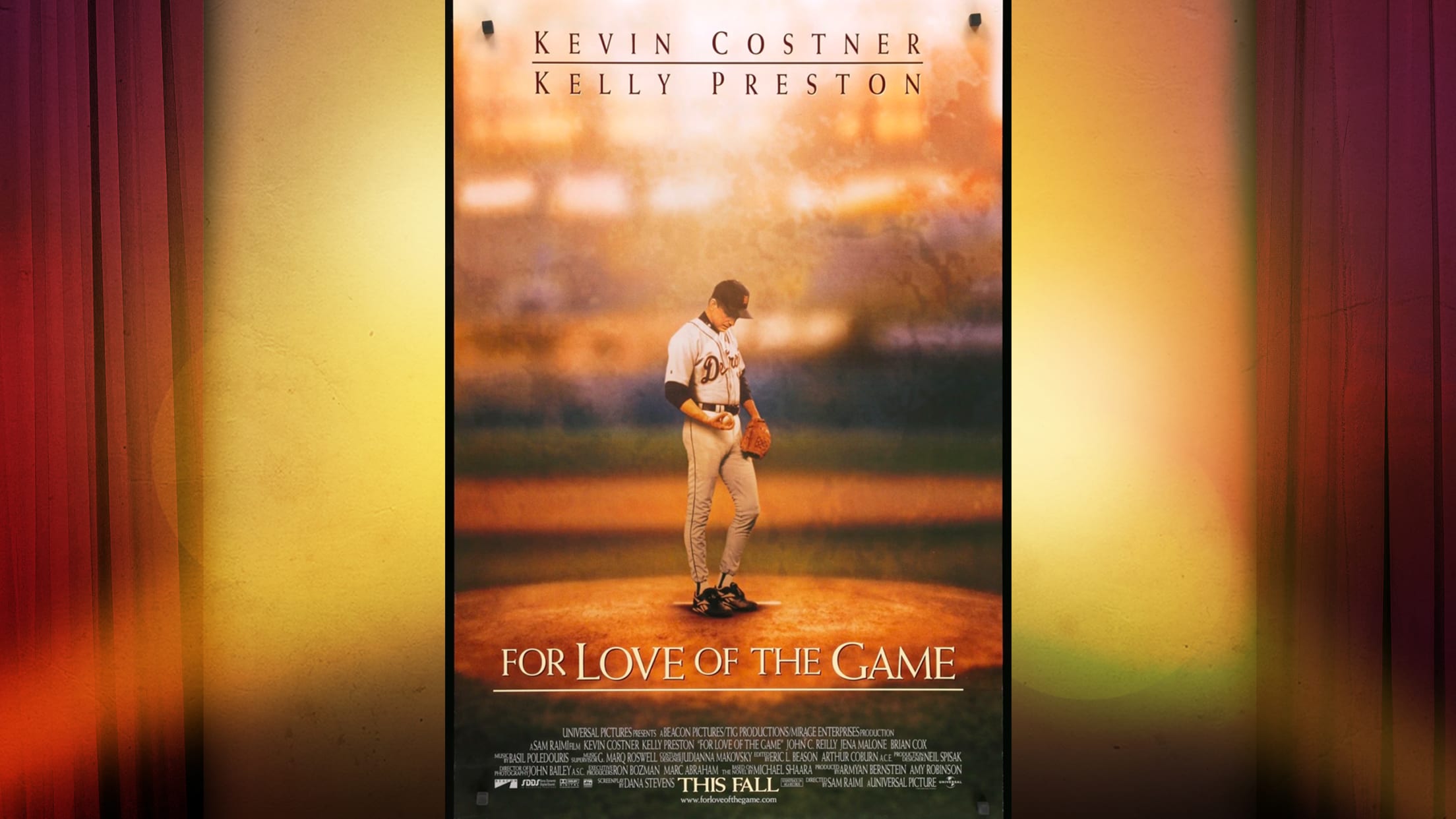
Randhawa: Vin Scully was the best part of that movie.
Browne: That was cool. And not only was Scully in that movie, but how about Bob Sheppard? Two absolute legends playing themselves.
Randhawa: The fact it was filmed in old Yankee Stadium was cool.
Browne: As much as I loved Kelly Preston in the movie, I thought the whole love story was a little over-wrought. I didn’t feel tremendous chemistry between the two characters. Like, why were they so in love? I just wasn’t feeling that part of the movie.
McCalvy: I have something controversial to say: I liked this movie. I liked the pacing of it, and somehow I found it plausible that a crafty old vet could be out there pitching for a bad team running through the story of his life in his mind. It’s not my favorite baseball movie, but I enjoyed it. [Ducks]
Footer: While I didn’t really like the movie, there were parts that hit me a little bit. One of the last scenes, for example: He’s in his hotel room after the perfect game and he’s alone, after experiencing one of the greatest moments of his career. And he breaks down crying. Everything is sinking in at the same time: He’s nearing the end, he’s not going to be able to recover from his injuries and he knows it’s almost over.
Not to get too heavy in this fun conversation, but I wonder if more than one real-life player has gone through this kind of experience as his career was winding down.
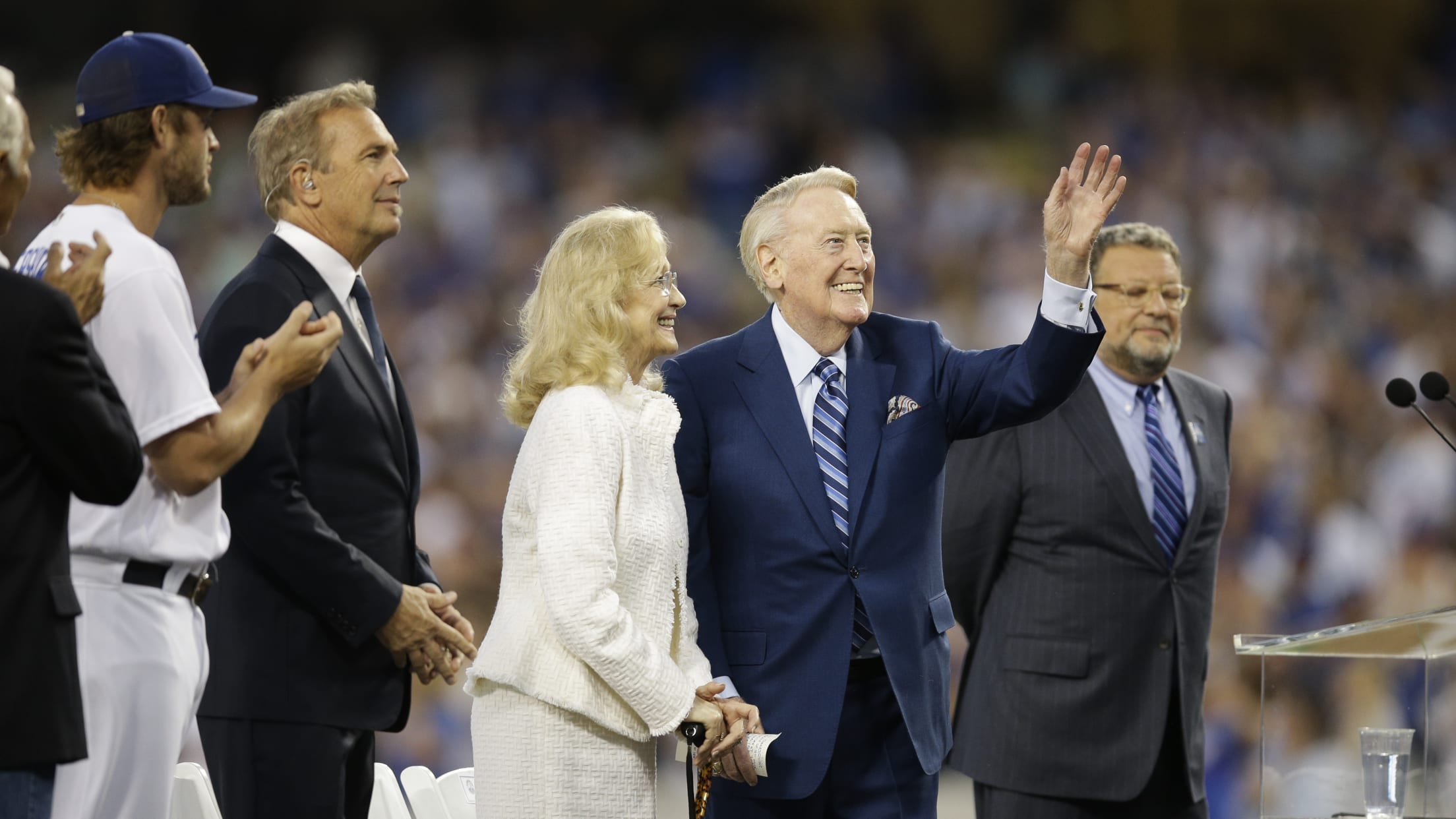
Costner with Scully at Vin Scully Appreciation day on Sept. 23, 2016
Browne: Chapel’s perfect game reminded me a little of David Cone. Cone was really almost at the end of the line when he threw his perfect game. Though it wasn’t his last start, he didn’t do much after that.
McCalvy: Mike Lupica just wrote a story with Cone talking about the parallels with Cone’s perfect game at Yankee Stadium, right before this film was released.
Randhawa: Didn’t Chapel fall to his knees like Cone did?
One of the best lines in that movie was from Preston: “Are we not in America? Is baseball not America’s favorite pastime?!”
Footer: This part made me chuckle: When the movie shifted to Lakeland, Fla., the Tigers’ Spring Training home, the opening shots showed sandy white beaches along the oceanfront. Central Florida is not … that.
Browne: I realize the flaws of the movie — corny at times, a little over-done — but I still really enjoyed it if that makes sense. I guess the movie is kind of a guilty pleasure for me.
Footer: One other chuckler: When Jane was panicking after her daughter ran away and needed Billy’s help, she calls a number that reaches him in the bathroom of the Tigers’ clubhouse. Then she says, “Hope it’s OK, someone in the front office gave me this number.” Humorous on many levels.
Castrovince: Hey, any good reporter can get the number of the clubhouse bathroom if you really work your sources.
Randhawa: The scene where he faced his old teammate was pretty good, in my opinion.
Footer: I felt like that is a prime example how this movie missed the mark — little character development. There was no one to get emotionally attached to. The flashback scenes with his former teammate, whom he was now facing in the perfect game, for example. They could have really developed that friendship storyline so you actually cared when they faced off in the game.
Browne: Totally agree on lack of character development. Especially when compared to movies like “The Natural” and “Bull Durham.”
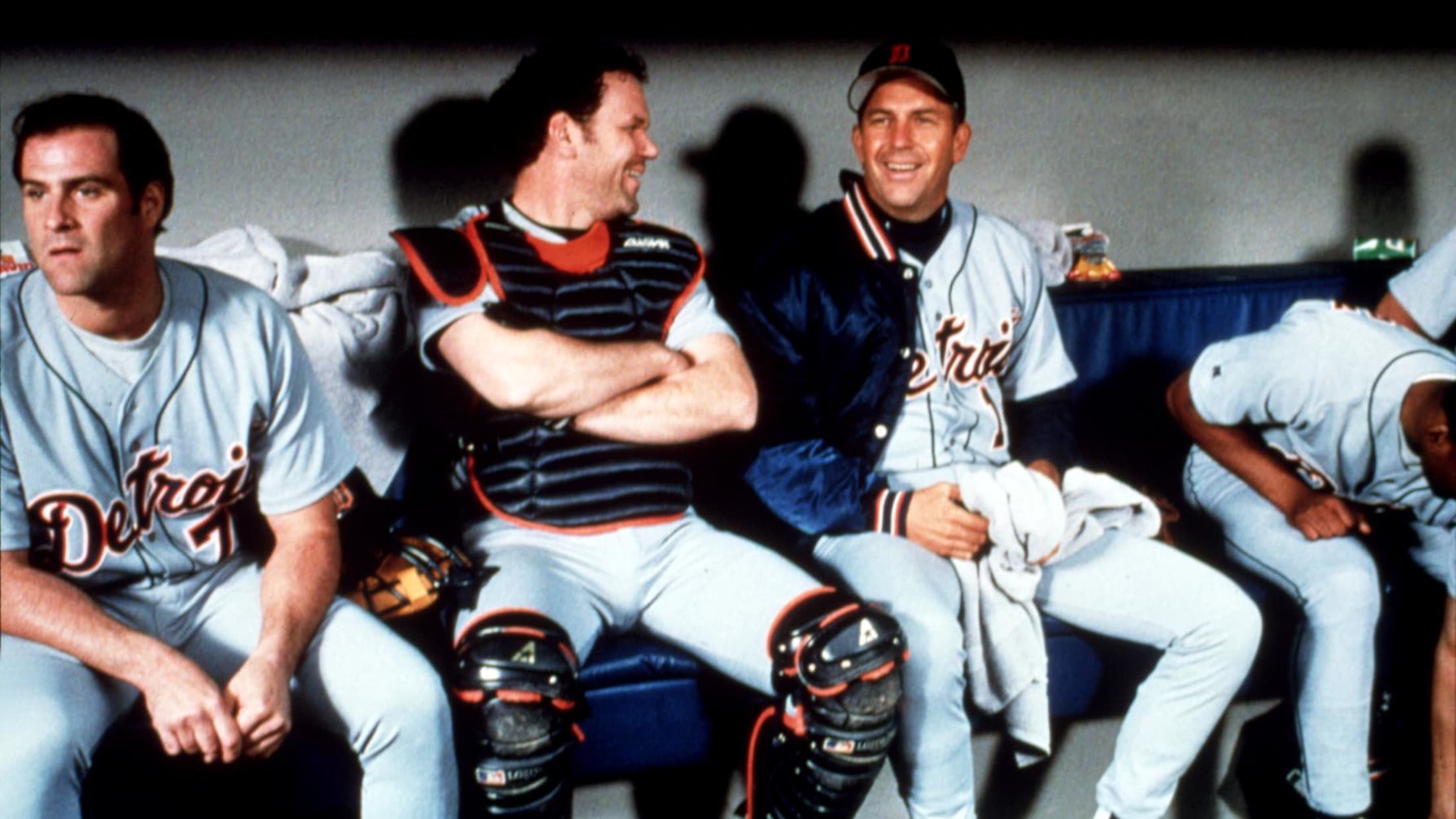
Footer: Hollywood ending rating: (scale of 1 to 5)
Dramatic effect: 4
McCalvy: 3
Browne: 3.2 (we all knew it was coming)
Randhawa: 3
Footer: Buildup to the big moment: 2 (those last two innings took forever, I wanted to throw something at the TV)
McCalvy: 2
Randhawa: 2
Browne: 2.5
Footer: How close you were to crying when the Hollywood ending arrived: 1
Browne: -4
Randhawa: 0
McCalvy: Yeah, 0
Footer: Rate this movie compared to the others in the Hollywood ending bracket (1-3, 3 being the worst): 3
Randhawa: 3
McCalvy: 3
Browne: 2
Castrovince: 2.
Footer: On to “Field of Dreams”!
I love the historical feel, especially with how cleverly they worked in the players from the 1919 Black Sox and from that generation in general. The unrealistic and fantastical premise — Costner’s character hearing voices in his head, dead ballplayers coming back to life, disappearing into a corn field at the end of every day without needing as much a meal — somehow isn’t that bothersome. It’s as if we want to believe that this could actually happen, even though it could never actually happen.
It’s the antithesis of “For Love of the Game,” which included mostly realistic scenarios, and it was a dud.
Castro is our official staff “Field of Dreams” anti-fan. Everyone is invited to weigh in/pile on. Go crazy, folks — your take on this classic?
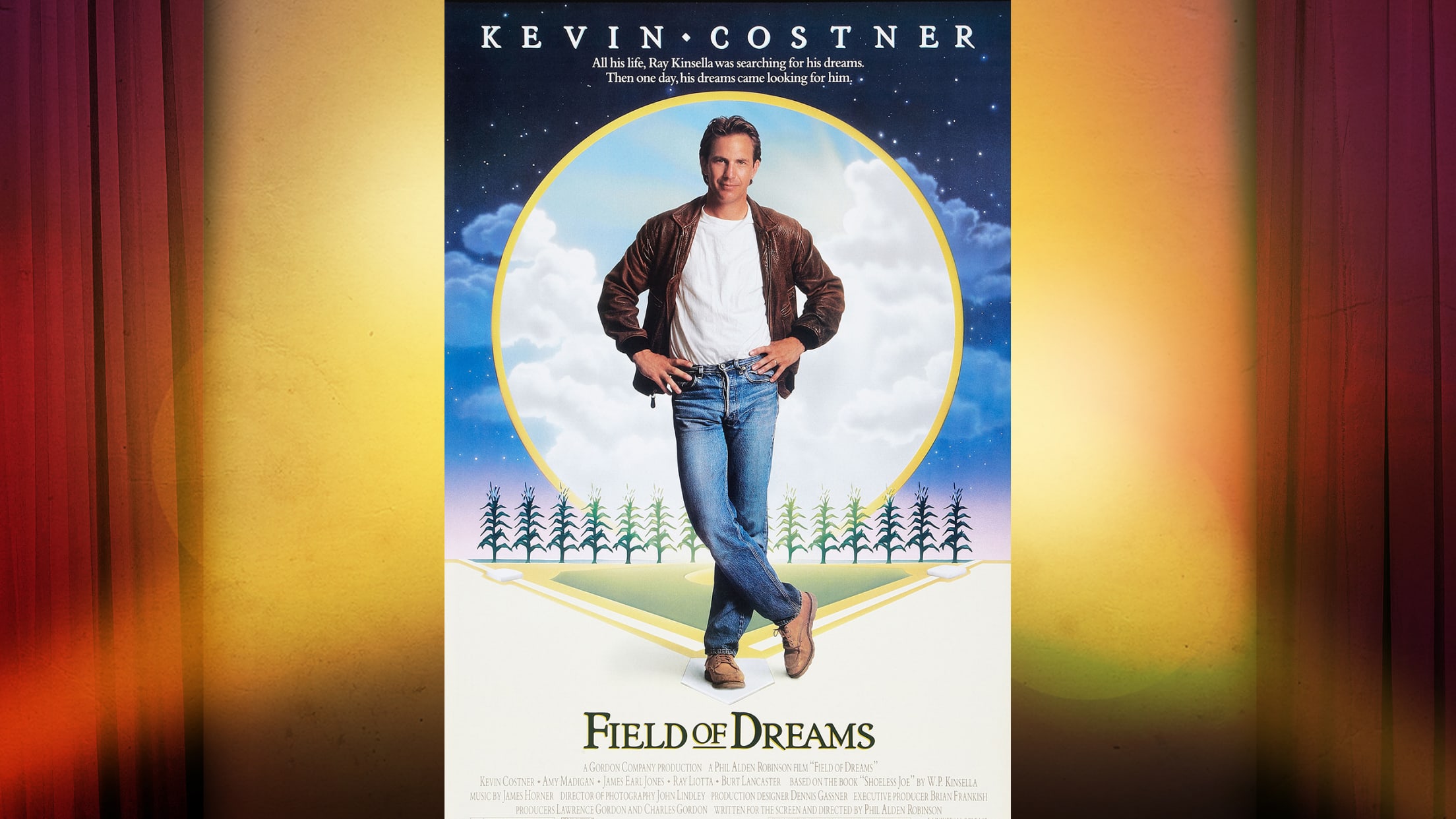
McCalvy: This movie was great. Not “The Godfather”-great or some all-time artistic classic, but the story touched millions of people and it’s still drawing folks to a farm in Iowa today. I love it every time I watch it and I think criticizing it is fashionable, like criticizing Skyline Chili. Is it gourmet? No! But it’s very good.
Footer: Skyline Chili is terrible.
Castrovince: I’ll start by saying I love the “Field of Dreams” … as in, the actual field. It is everything the movie is not: Uncomplicated, well-constructed, beautiful.
The movie is the problem. It takes these compelling themes — the generational conflict between fathers and sons in 1960s America, spirituality and the afterlife and the love of baseball — and tries a little too hard to squeeze them all into one plot.
Browne: I loved the flannel uniforms, and Shoeless Joe Jackson coming back to life, played by the lead gangster from “Goodfellas” and the idea of being able to build a field like that in your backyard farm. But the fantasyland aspect of it was hard for me to grapple with.
Randhawa: The aesthetics were great — everyone wants to have a full-size baseball field in their backyard. Not a fan of the mystical aspect of it — but that was kind of the only vehicle to drive the plot.
Browne: I liked the road trip to Boston. That was cool. Great excuse to go to Fenway. Fenway looks rundown in that movie by the way. Way before the 2003-ish renovations. Shows how much nicer that park is now than it was in the late ’80s. Most parks get worse as they get older.
Footer: I guess I loved the James Earl Jones portion of the movie and that masked a lot of the other cheesy elements.
Randhawa: James Earl Jones’ baseball speech is iconic.
Browne: James Earl Jones was tremendous, especially when he was being nasty to Ray at first.
Castrovince: It’s just too cheesy. That is my criticism of both Skyline and “Field of Dreams.”
Browne: No spouse would play along like Annie did with everything that was happening. Can we all agree on that?
Footer: I agree. In real life, she tricks him into going to get ice cream with Karin and instead takes a left turn to the hospital to get his head examined.
Browne: YES! My wife also thought he needed a head exam after watching this movie with me this weekend.
Footer: I also liked the ballplayer-turned-dead-doctor-turned-ballplayer-turned doctor who saves Costner’s daughter from a concussion subplot.
Browne: I’d like to know what happened to the ballfield after that mythical game. Did they start holding Little League games there? High school games? Showcase tournaments?
You can’t just have a field for dead guys to play on every night.
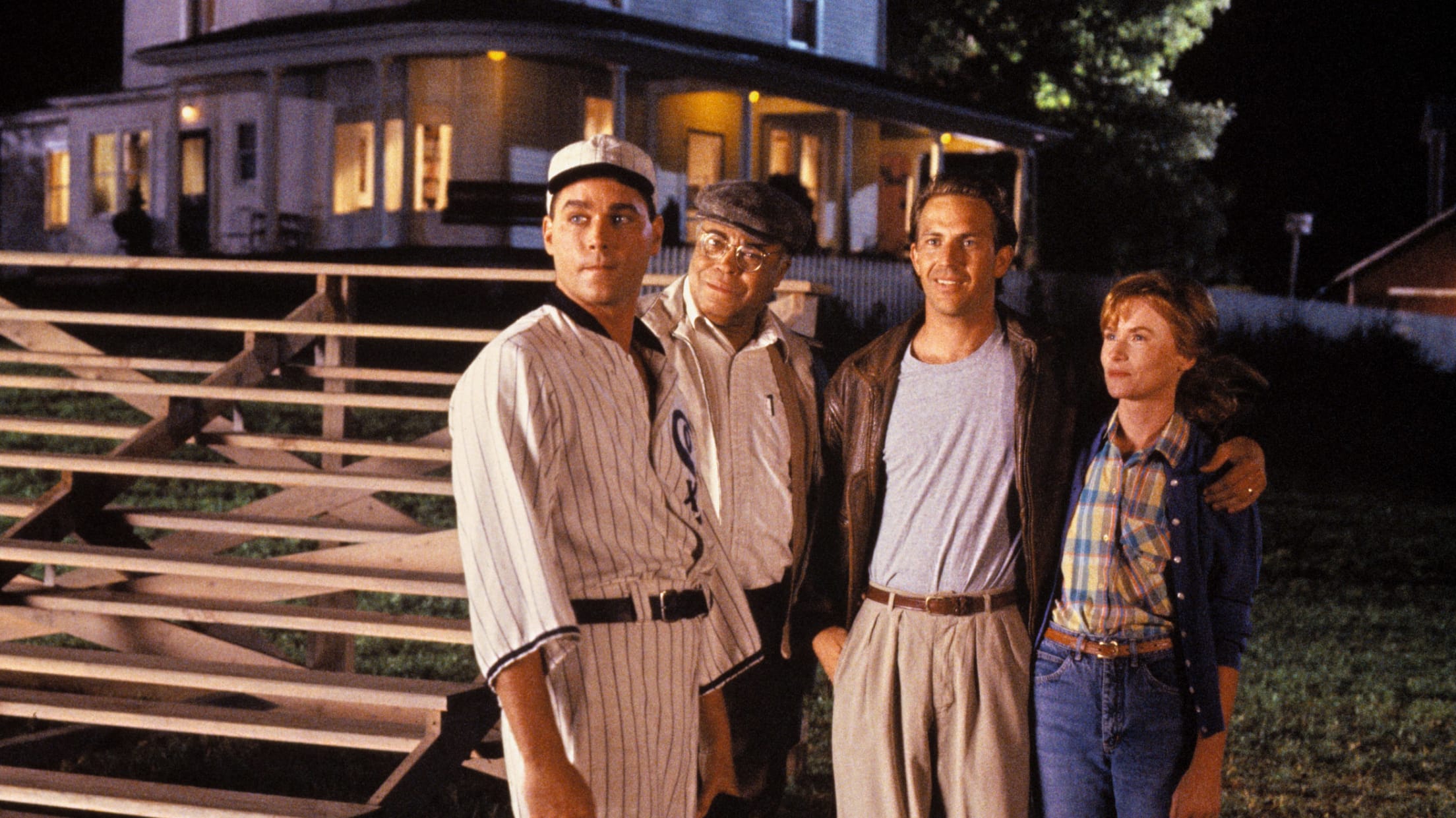
Browne: Can we all agree that the catch at the end of the movie was the best part? I mean, anyone who is human can relate to how awesome that was.
McCalvy: I have bawled twice at a movie, like straight-up bawled my eyes out. The catch at the end of “Field of Dreams” was one of them.
Browne: I only bawl during “This is Us.”
Footer: Is it that last scene that makes this movie a classic? Without it, are we talking about it like this today?
Browne: I guess? But I don’t consider it a classic.
Randhawa: Without that scene, I doubt we’re talking about it.
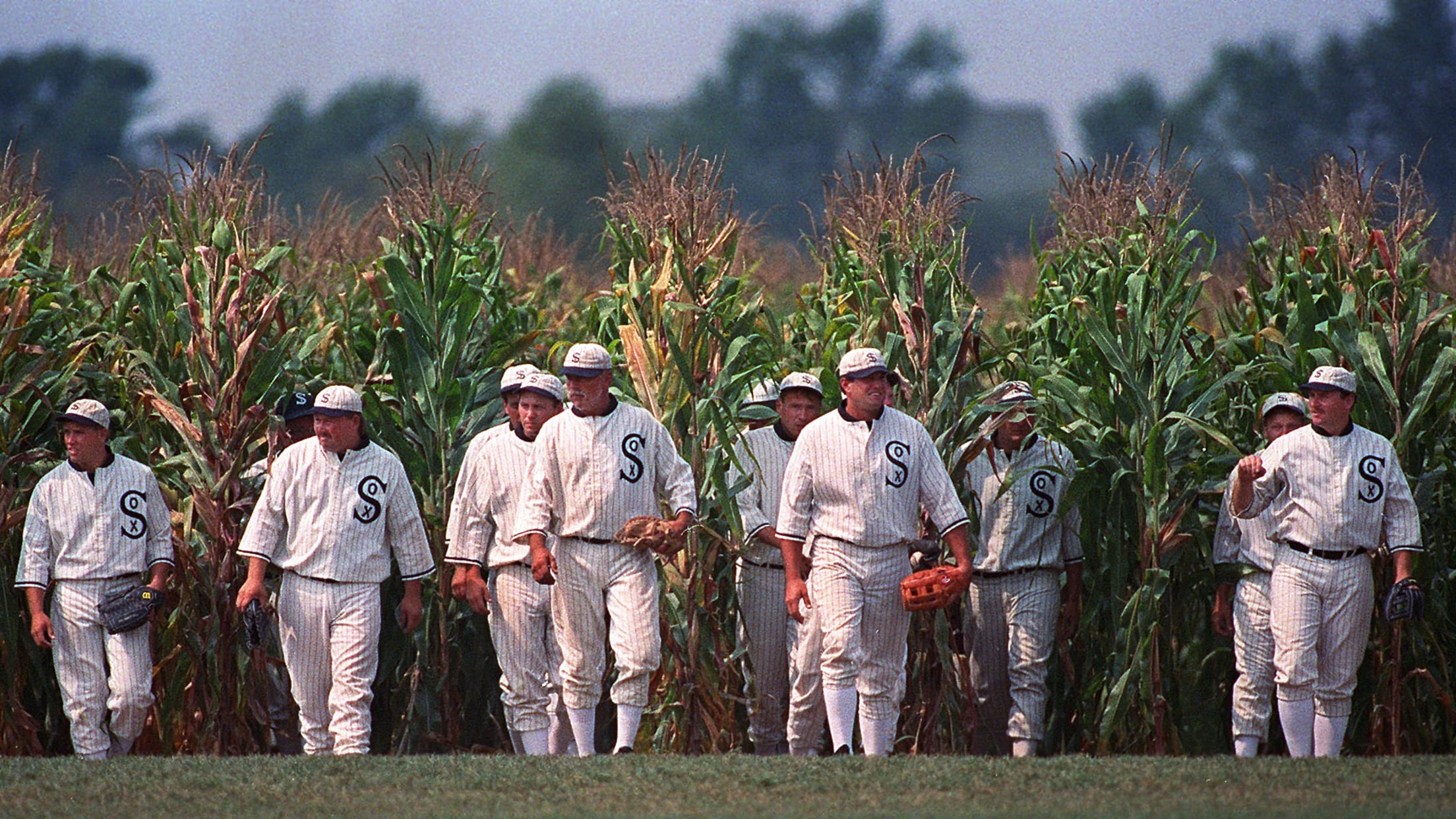
McCalvy: The final scene definitely tied the film together, I’ll give you that.
Browne: I just consider it a good baseball movie. It was very interesting. There are a bunch of other baseball movies I like more.
Footer: Ratings time…
Rate the Hollywood ending: (scale of 1 to 5)
Dramatic effect: 4
Browne: 3.5
McCalvy: 5
Randhawa: 4
Castrovince: 147.9 million. (That’s what it grossed, adjusted for inflation. Pretty dramatic.)
Footer: Buildup to the big moment: 4
Browne: 4
Randhawa: 4
Castrovince: 5 for buildup. I mean, he literally built a baseball field.
McCalvy: 4. But there were a couple of great moments — The speech, the catch, Moonlight Graham stepping over the line.
Footer: How close you were to crying when the Hollywood ending arrived: 2
Randhawa: 1 — that’s saying a lot for me, though.
Browne: 1
McCalvy: 5
Castrovince: 0
Footer: Rank this movie compared to the others in the Hollywood ending bracket (1-3, 3 being the worst): 2
McCalvy: 2
Browne: 3
Randhawa: 2
Castrovince: 3
McCalvy: I’m disappointed no one asked what other movie made me bawl.
Footer: What other movie made you bawl?
McCalvy: “We Bought a Zoo.”
Think one of these titles is the best baseball movie of all time? Return to MLB.com later this Spring to cast your vote and you could find yourself in Hollywood at the 2022 MLB All-Star Game presented by Mastercard in Los Angeles!